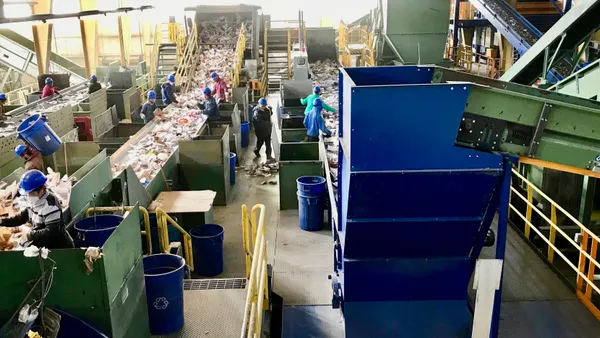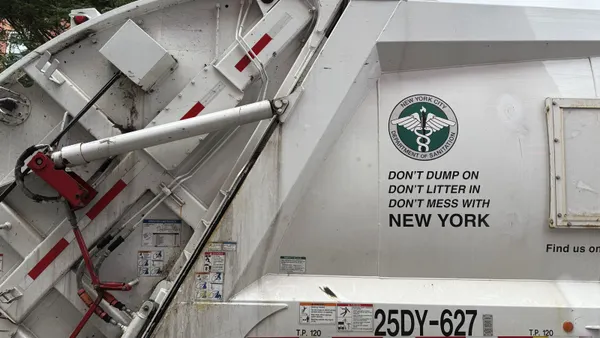Dive Brief:
- A new ordinance will be discussed in a Boston City Council meeting today that would set a 5-cent fee for both plastic and paper single-use bags. Bags used for fish, meat, produce, newspapers or laundry services would not be affected by the ordinance. The proposal would also require that bags be compostable or no less than 3 millimeters thick, as reported by the Boston Herald.
- Casella, the city's single-stream recycling processor, reportedly receives 20 tons of plastic bags per month at its facility in Boston which often get tangled in machinery.
- The ordinance is being co-sponsored by Council President Michelle Wu and could be voted on at a subsequent meeting in December. If passed, the law would take effect within one year.
Dive Insight:
Supported by various environmental and civic groups, this ordinance has gained fast support over the past year after a series of public forums with elected officials. While environmental groups such as the Mass Green Network are encouraged by the progress, some members would prefer to see a 10-cent fee. On the other hand, the Massachusetts Retail Association and bag industry representatives have opposed the ordinance.
This battle has played out in a similar way to municipalities throughout the country though it has taken on more weight because Boston is the largest city in Massachusetts. With ordinances now on the books in 42 municipalities — including nearby Cambridge, Somerville and Brookline — Boston could be the tipping point and a model for statewide legislation. Because of this, environmental advocates want to make sure the ordinance's language is as strong as possible while opponents want to make sure it doesn't pass.
The recent success of Proposition 67 in California, which narrowly upheld a 2014 statewide ban on single-use plastic bags, has given new hope to supportive groups. Major cities such as Seattle, New York and Chicago have also pursued their own bag ordinances with varying degrees of difficulty so far. While Hawaii and a few U.S. territories also have bag ordinances in place, it's still more common to see states trying to prohibit similar legislation rather than pass it. Boston's ordinance won't be definitive for either side, but it has become the latest focal point in this ongoing national debate.









